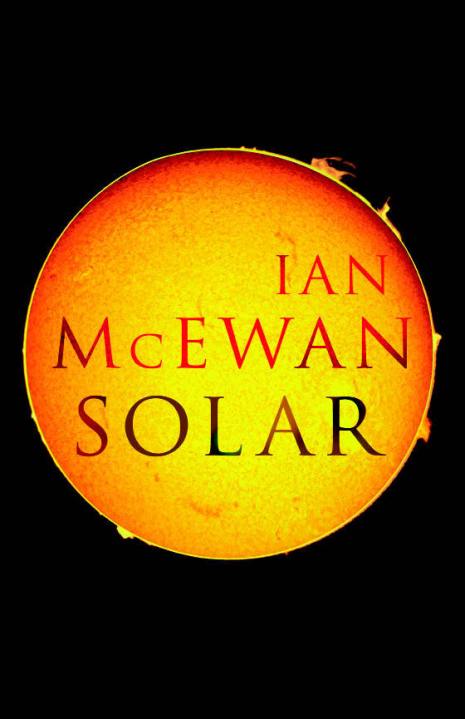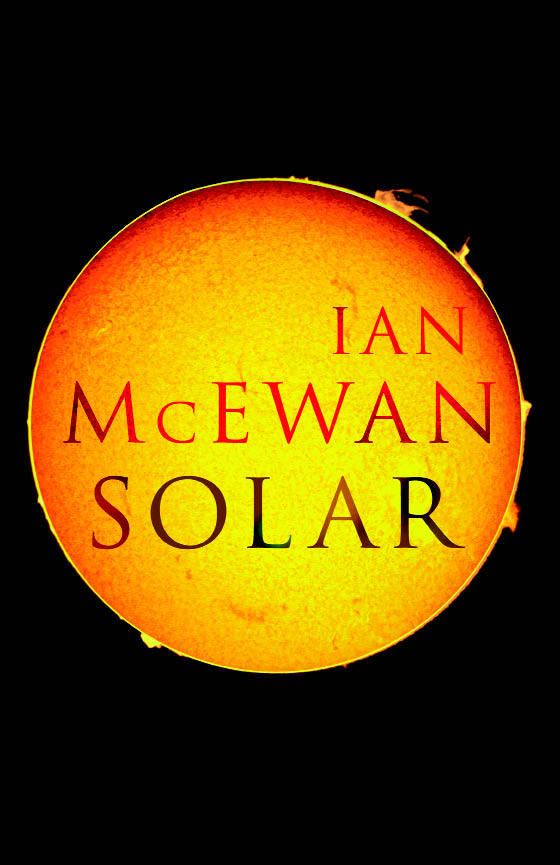Not long ago I had an email from a friend, wondering if I’d yet read the new Ian McEwan.
Not long ago I had an email from a friend, wondering if I’d yet read the new Ian McEwan. ‘Talk about a bolt from the blue,’ she said. ‘McEwan does slapstick. I never saw that coming.’ She added (unfairly, I thought) that you might class On Chesil Beach as slapstick of an unintentional sort, but her point holds. Here, in a book around a scientific theme of considerable seriousness — global warming and renewable energy — McEwan has written the closest thing he’s ever done to a farce.
Told in three chunks, spaced at intervals between 2000 and 2009, Solar is the story of a Nobel-prize-winning physicist on a slow slide to disaster. As a young man, Michael Beard won the Nobel Prize for a discovery about the interaction between matter and light called the Beard-Einstein Conflation. That hyphen — at once linking his name to Einstein and marking him as an appendage to a greater man — is tormenting.
Now Beard is short and stocky and his hair is thinning. He is coasting on his reputation; he sits on boards and lends the glow of the Swedish Academy to letterheads. Currently, he’s running a centre where they’re trying to design a wind-turbine for domestic use.
But he is no longer on the cutting edge, and the enthusiasms of his geeky assistants are an irritant rather than an inspiration. Front and centre in his mind is not physics but the fact that his young and beautiful fifth wife is quite openly schtupping the builder. And despite his own heroic history of infidelities, Beard minds very much about this.
At first, McEwan seems to be in Philip Roth territory. As the slapstick thickens — and Bear observes himself, with droll detachment, being driven demented by his wife’s infidelity — he seems to be in dialogue with Howard Jacobson or Kingsley Amis. Then, in creeps Tom Sharpe. And by the time an alfresco pee-stop in the Arctic circle (Beard’s on a global-warming-related freebie) causes our hero’s penis to freeze to his metal zip, Ian McEwan seems to be channelling the Farrelly brothers.
The plot twists off with some very McEwanish elements, though: a nerdy young man, an unexpected death, an intensely imagined moment of madness. It moves on and out until the Beard of the third act is on the verge of what should be a triumph.
He has patented a system, modelled on photosynthesis, for making clean energy from sunlight, and is about to unveil a full-scale trial in the New Mexico desert. He’s quietly anticipating being hailed as the man who saved the planet — and becoming very rich into the bargain. But then his solar panels fall into shadow, for the sky is dark with chickens coming home to roost.
Comic writing plays — in a way that should not be as unexpected as all that — to McEwan’s strengths. He has always been good at set-pieces and at the mechanics of plot, spring-loading the action so that the unobserved detail in part comes back to bite you in the final act. Those talents are transferable. The mechanics of tragedy and the mechanics of farce are similar; and comic novels are all about set-pieces — think of Gussie Fink-Nottle’s peroration, Jim Dixon’s hangover or the drinks party in Eating People Is Wrong.
Here comic set-piece hinges across to comic set-piece. Beard nearly loses his cock. Beard nearly gets eaten by a polar bear. Beard confronts his wife’s lover. Beard confronts his wife’s other lover. Beard is at bay after he unwittingly offends an impertinent constructivist orthodoxy in the humanities (a corker, this, though the way I’ve described it may not sound like a Ray Cooney number).
It’s very larky. Very larky. In one bit, for instance, Beard becomes indignant when, on a train, a stranger starts eating his crisps. They have a glowering but silent face-off, each scoffing the crisps defiantly. Then when they’ve left the train, of course, Beard finds his own packet of crisps in his pocket. The reader thinks: cheek! He’s lifted that from Douglas Adams. But then Beard tells the story in public, and an academic folklorist turns up stage left to upbraid Beard for lifting the story from Douglas Adams. But Beard insists that it actually happened, to no avail, and you can all but hear the author sniggering happily.
It’s funny to see elements of the old McEwan jostle with this new style. Turpin, the builder who cuckolds Beard, is a figure broadly stereotyped, with his mock-Tudor house with its Victorian lamp-post, boat on the drive, and ambitions towards a decommissioned red phone box. But then we see him with his top off:
Sitting right on the skyline of his shoulder, protruding a good half-inch, was a growth of twisted skin, a tag, that resembled a miniature human ear, or a sailor’s minuscule parrot. A few turns of tightly tied dental floss and it would be gone in a week.
That incidental deformity feels like an irruption of the gothic McEwan of The Innocent or the early short stories.
McEwan’s densely visual style — he’s always slowing down the action to take a look around — means that not all the comic episodes are as light on their feet as they want to be. The larkiness sometimes causes a grinding of gears, too: the novel’s satiric ambitions don’t always fit perfectly with its slapstick side.
But it’s wonderfully enjoyable to read McEwan in this mode, and if a Martin Amis will sometimes seem to make his characters serve a cosmic theme, McEwan makes his cosmic theme serve his characters. This isn’t a novel about science — though it tells you about that — but about scientists; and it’s not a novel about planetary doom — though it tells you about that, too — so much as about individual doom:
He was running out of time. Everyone was, it was the general condition, but Michael Beard, bloated by an unwanted lunch, shifting under his seat belt, could think only of the diminishing hours of his day, and of what he stood to lose.
McEwan’s hero is an entropic figure — a baleful reminder of the metaphoric power of the second law of thermodynamics. And even as Beard sets out to save the planet, he embodies our relationship with it in comic form: his idleness and sense of entitlement, his self-deception, his intellectual theft and his vast bodily appetites.
At a speaking engagement, Beard shovels nine triangles of smoked salmon onto his plate (‘a precautionary number’), and eats them all, making himself sick. He enjoys a moment of transcendence in the presence of a packet of salt-and-vinegar crisps.
As he acquires his third chin, as he declines to do anything about the melanoma on his hand, Beard acknowledges with complacency that he is past the point of no return:
He did not have it in him to eat and drink less . . . . He could not command his body to do it, he had no will for it. He would rather die than take up jogging or prance to funky music in a church hall with other tracksuited deadbeats.
So, with nemesis approaching, he’s to be found eating a steak skillet breakfast:
Four wedges of skinless chicken breast, interleaved with three minute steaks, the whole wrapped in bacon, with a honey and cheese topping, and served with twice-roasted jacket potatoes already impregnated with butter and cream cheese.
Beard is as robust and full-fleshed and ebullient a character as McEwan has come up with. And in Solar, he shows a side to himself as a writer — a puckishness, a broadness of humour, an extravagance of style — that we haven’t seen before.








Comments